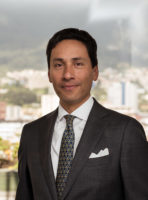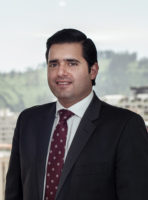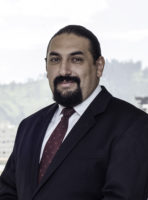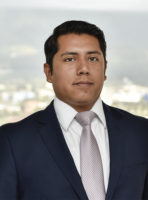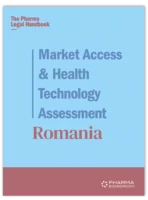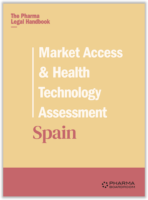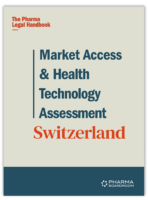Cannabinoid Drugs, Medicinal Cannabis and Opioid Drugs
Corral Rosales / Ecuador
Cannabinoid Drugs
1. Are Cannabinoid Drugs authorized in your country?
On September 17, 2019, Congress approved a reform of the Criminal Code, which reforms included the decriminalization of possession of drugs that contain cannabis or derivatives as their active ingredient for therapeutic, palliative, or medicinal use or the practice of alternative medicine. In addition, the Law of Control and Prevention of the Use of Drugs was amended, excluding non-psychoactive or hemp cannabis from control, extended to the cannabis plant or any part of the plant whose delta-9-tetrahydrocannabinol (THC) content is less than 1% which among other, excludes non-psychoactive cannabis or hemp of the listed substances subject to control, which shall be understood as the cannabis plant and any part of such plant whose dry weight concentration of delta-9-tetrahydrocannabinol (THC) is below 1%. This reform came into effect on June 21st, 2020.
On February 26, 2021, the Ministry of Health issued Ministerial Agreement No. 148-2021, which regulates the prescription, provision, and therapeutic use of medicinal cannabis and pharmaceutical products containing cannabinoids. This agreement came into effect on March 15th, 2021.
On August 23rd, 2022, the Agency for Health Regulation, Control, and Surveillance (ARCSA) issued Resolution No. ARCSA-DE-2022-014-AKRG with the “Sanitary Technical Norm for the regulation and control of products for human use and consumption containing non-psychoactive cannabis or hemp, or derivatives of non-psychoactive cannabis or hemp.”, which came into effect the same day. This resolution allows the production, package, import, export, store, dispense, and commercialization of the following finished products with the concentration of THC specified for each category:
- Pharmaceutical products, in general, processed natural products fr medicinal use, and homeopathic products (Pharmaceutical products that contain a concentration of THC equal to or greater than 1% in their formulation will be regulated as drugs subject to control.): Less than 1% THC;
- Processed foods and food supplements: Less than 0.3% THC;
- Cosmetic products: Less than 1% THC;
- Medical devices, Hygienic Products for Industrial Use, Pesticides for Household Use, Pesticides for Public Health or Industrial Use, Household Hygiene Products, and Absorbent Personal Hygiene Products: Less than 1% THC.
2. What are the regulatory authorities with jurisdiction over Cannabinoid Drugs?
The Health Ministry (HM)
National Agency for Regulation, Control and Sanitary Surveillance (ARCSA)
3. Is there a specific regulatory framework for the authorization, pricing, and reimbursement of Cannabinoid Drugs?
No, there is no specific regulatory framework for pricing and reimbursement of cannabinoid drugs. However, for products registered as medicines, the price-fixing regime will apply to all other medicines.
4. Which are the cannabinoid drugs that have received market approval to date?
To obtain marketing authorization, the product must have the respective document issued by ARCSA based on it and additional analysis certifying its THC concentration.
Pharmaceutical products must submit an analysis according to the pharmacopeia or the analytical methodology, adjusted to the protocol, and validated (within the results).
Pharmaceutical products not subject to control are considered to be medicines in general, processed natural products for medicinal use, and homeopathic products that have predominantly cannabidiol (CBD) and cannabis or cannabis derivatives in their formulation, as appropriate, with a percentage lower than 1% of delta-9-tetrahydrocannabinol (THC). All products for human use and consumption that contain in their formulation cannabis or cannabis derivatives with a percentage equal to or greater than 1% of THC will be regulated as drugs that contain listed substances subject to control. Currently, there are approximately 200 products on the market with cannabinoids with a THC content of less than 1% for medicinal, food, household hygiene, and cosmetic use. With cosmetics controlling approximately 65% of the market.
5. Who can prescribe Cannabinoid Drugs?
It depends on whether the product is classified as OTC or a prescribed drug. If classified as a prescribed drug, it can be prescribed by health professionals registered in the National Secretariat for Higher Education, Science, Technology, and Innovation (SENESCYT) or through ARCSA as a suggestion for the treatment of refractory epilepsy or convulsive syndromes.
According to Ministerial Agreement No. 148-2021, medications subject to control that contain cannabinoids and a concentration of THC equal to or greater than 1% will be prescribed to users/patients with the following suggested therapeutic indications or other diseases or health conditions, according to the best available scientific evidence:
a. Anorexia-cachexia asthenia syndrome and other symptoms found in the palliative care/end-of-life setting associated with HIV, cancer, or other pathologies;
b. Treatment of nausea and vomiting associated with chemotherapy;
c. Complementary treatment for the symptomatic relief of spasticity and pain in users/patients with multiple sclerosis (MS);
d. Complementary treatment for the symptomatic relief of chronic non-cancer pain in adult users/patients;
e. Adjunctive analgesic treatment in users/cancer patients experiencing moderate to severe pain;
f. Other therapeutic indications duly based on the best available scientific evidence.
“Health professionals authorized to prescribe drugs containing narcotic or psychotropic substances are:
a) Physicians (general and specialist authorized to issue special prescriptions); and
b) Dentists.
The prescription of drugs containing narcotic and psychotropic substances by dental professionals authorized to prescribe must be tied to user/patient treatment protocols approved by the National Health Authority.”
6. Is there a list of doctors authorized to prescribe Cannabinoid Drugs?
Yes. The list of professionals with special prescriptions issued by ARCSA.
7. What approvals or notifications are required to prescribe Cannabinoid Drugs?
Health professionals approved to prescribe controlled drugs that contain cannabinoids with a THC concentration equal to or greater than 1% are authorized to issue special prescriptions. These prescriptions will be issued in accordance with the medical conditions detailed in Article 4 of these Regulations and with the provisions of the treatment protocols for national or international use.
Health professionals authorized to prescribe pharmaceutical products containing cannabinoids in a THC concentration of less than 1% are health professionals authorized to prescribe with a professional license issued by a Higher Education Institution recognized by SENESCYT or whoever has these duties and registered with the National Health Authority. Said prescription shall contemplate what is listed in these regulations and follow the provisions of the recognized treatment protocols for national or international use.
8. Which organizations are authorized to sell/distribute Cannabinoid Drugs available?
The commercialization and sale of drugs containing cannabinoids and a THC concentration equal to or higher than 1% may only be carried out by private pharmacies and pharmacies of public and private health facilities that have or are renovating the corresponding operating permit granted by the ARCSA or ACESS, respectively, upon evidencing a Special Prescription for medicines containing listed substances subject to control, duly signed by the health professional authorized to issue special prescriptions, as established in this Regulations.
Private pharmacies, medicine cabinets, and pharmacies of public and private health facilities that have the corresponding operating permit granted by the health authority may commercialize and sell pharmaceutical products containing cannabinoids with a THC concentration of less than 1%.
9. Is there a list of retailers/distributors authorized to sell Cannabinoid Drugs?
There is a list of qualified establishments for the management of drugs subject to audit, but there is no list of distributors.
10. Are there proposals for reform or significant change to the regulation of Cannabinoid Drugs?
The issuance of a new regulation for human-use products and consumption containing non-psychoactive cannabis or hemp is pending. Resolution No. ARCSA-DE-2022-014-AKRG -Technical Sanitary Standards for the Regulation and Control of Finished Products for Human Use and Consumption Containing Non-Psychoactive Cannabis or Hemp, or Derivatives of Non-Psychoactive Cannabis or Hemp-, is effective as of August 23, 2022.
11. When are they likely to come into force?
There is no Information.
Medicinal Cannabis
12. Is Medicinal Cannabis authorized in the country?
On September 17, 2019, the National Assembly approved the Reform of the Criminal Code, which reforms included the decriminalization of possession of drugs that contain cannabis or derivatives as their active ingredient for therapeutic, palliative, or medicinal use or for the practice of alternative medicine. In addition, the Law of Control and Prevention of the Use of Drugs was amended, excluding non-psychoactive or hemp cannabis from control, extended to the cannabis plant or any part of the plant whose delta-9-tetrahydrocannabinol (THC) content is less than 1% whose among other, excludes non-psychoactive cannabis or hemp of the listed substances subject to control, which shall be understood as the cannabis plant and any part of such plant whose dry weight concentration of delta-9-tetrahydrocannabinol (THC) is below 1% and allows. This reform came into effect on June 21st, 2020.
On February 26, 2021, the Ministry of Health issued Ministerial Agreement No. 148-2021, which regulates the prescription, provision, and therapeutic use of medicinal cannabis and pharmaceutical products containing cannabinoids. This agreement came into effect on March 15th, 2021.
13. What are the regulatory authorities with jurisdiction over Medicinal Cannabis?
The Health Ministry
National Agency for Regulation, Control and Sanitary Surveillance (ARCSA).
14. What is the regulatory framework for the authorization, pricing, and reimbursement of Medicinal Cannabis?
Yes, the requirements for the registration of Medicinal Cannabis are:
- Registration with ARCSA as an importer/vendor/distributor of medications that contain substances categorized as subjects of audit.
- Certificate the percentage of THC of the product.
- Specify the therapeutical indications of the product that must have scientific evidence of their safety and efficacy.
- Qualification for handling medicines containing scheduled substances subject to control issued by the ARCSA. (for medicinal cannabis containing THC concentration equal to or greater than 1%)
- Annual projections of consumption of imported medications that contain substances categorized as subject to control.
- List of possible clients (if registering as a vendor).
The Ministry of Health, through the Technical Secretary for Medication Price Control, will set the maximum sale price of the drugs.
15. How is the production and import of Medicinal Cannabis regulated and by which agencies/authorities?
The Ministry of Agriculture regulates the production and importation of non-psychoactive hemp seeds.The National Agency for Regulation, Control, and Health Surveillance ARCSA will oversee medicinal cannabis.
16. What approval or notifications are necessary to produce or import Medicinal Cannabis?
The import, planting, cultivation, harvest, post-harvest, storage, transportation, processing, commercialization, and export of non-psychoactive Cannabis or hemp and hemp for industrial use is regulated by the Ministry of Agriculture under Ministerial Agreement No. 109. The manufacture of medicines, in general, processed natural products for medicinal use and homeopathic products that contain in their formulation cannabis or cannabis derivatives, as appropriate, in a percentage lower than 1% of THC should only be carried out in pharmaceutical laboratories that have the permission granted by the ARCSA and must have a certification of Good Manufacturing Practices, according to the regulations issued for that purpose.
Medicines in general, processed natural products for medicinal use, and homeopathic products that contain in their formulation cannabis or cannabis derivatives, as appropriate, in a percentage lower than 1% of THC must be marketed in pharmaceutical establishments authorized for this purpose by the ARCSA, following the activity described in its operating permit, with the sale method determined during the process of granting the corresponding marketing authorization, following current regulations. Imported cannabis products must comply with all requirements established by ARCSA and count with a marketing authorization. For the importation of cannabis derivatives that will be used in the manufacture of pilot batches of drugs in general and that have not yet obtained the corresponding marketing authorization, the legal representative of the interested party must upload through ARCSA´s Management System y – Quipux, a request for each import of the raw material to produce the pilot batch or to a maximum of 3 batches per year. The following requirements apply:
a. Composition formula of the product to be produced as pilot batches, which describes and justifies the use and quantity of the cannabis derivative per pilot batch;
b. Establishment where the pilot lots will take place and marketing authorization number;
c. Execution schedule of the pilot batch;
d. Invoice or proforma of the raw material addressed to the manufacturing establishment of the pilot batch;
e. Proof of payment of official fee;
f. Product elaboration process to be carried out in the pilot batch;
g. Technical data sheet and certificate of analysis of the raw material from the country of origin.h. The GMP of the pharmaceutical laboratory is responsible for the batch or batches.
17. What is the regulatory framework for the marketing and distribution of Medicinal Cannabis?
Medicines in general, processed natural products for medicinal use, and homeopathic products that contain in their formulation cannabis or cannabis derivatives, as appropriate, in a percentage lower than 1% of THC must be marketed in pharmaceutical establishments authorized for this purpose by ARCSA, following the activity described in its operating permit, with the sale method determined during the marketing authorization process, following current regulations.
18. How can patients obtain Medicinal Cannabis?
It is not possible yet.
19. Who can prescribe Medicinal Cannabis?
It depends on whether the product is classified as an OTC or prescribed drug. If classified as a prescribed drug, it can be prescribed by health professionals registered in the National Secretariat for Higher Education, Science, Technology, and Innovation (SENESCYT) or through ARCSA for the treatment of refractory epilepsy or convulsive syndromes. If classified as a prescribed drug, it must be prescribed through special prescriptions issued by ARCSA according to the treatments of diseases described in Article 4 of the Ministerial Agreement for the use of cannabinoids.
20. Is there a list of doctors authorized to prescribe Medicinal Cannabis?
Yes. Professionals that have special prescriptions (controlled substances).
21. What approvals or notifications are required to prescribe Medicinal Cannabis?
The Professional must count on special prescriptions and validate his degree in ACESS.
22. Where is Medicinal Cannabis available?
The commercialization and sale of drugs containing cannabinoids and a THC concentration equal to or greater than 1% may only be carried out by private pharmacies of public and private health facilities that have or are in the process of renewal of the corresponding operating permit granted by the ARCSA or ACESS, respectively. Upon evidencing a special prescription for medicines containing controlled substances, it is duly signed by the health professional authorized to issue special prescriptions.
The commercialization and sale of pharmaceutical products containing cannabinoids with a THC concentration of less than 1% may only be carried out by private pharmacies and medicine cabinets and pharmacies of public and private health facilities that have or are in the process of renewal of the corresponding operating permit granted by the ARCSA or ACESS, respectively, upon evidencing a medical prescription duly signed by the professional authorized to prescript.
23. Is there a list of retailers authorized to sell Medicinal Cannabis?
No.
24. Are there proposals for reform or significant change to the regulation of Medicinal Cannabis?
No.
Opioid Drugs
25. Are Opioid Drugs authorized in your country?
No.
26. What are the regulatory authorities with jurisdiction over Opioid Drugs?
Ministry of Health (MH)
National Agency for Regulation, Control and Sanitary Surveillance (ARCSA)
27. Is there a specific regulatory framework for the authorization, pricing, and reimbursement of Opioid Drugs?
Yes, for the registration of an opioid medication, there are specific requirements, as follows:
- Register with ARCSA as an importer/vendor/distributor of medications that contain substances categorized as subject to control.
- Qualification for handling medicines containing scheduled substances subject to control issued by the ARCSA. • Annual projections of consumption of imported medications that contain substances categorized as subject to control.
- List of possible clients (if registering as a vendor).
The Ministry of Health, through the Technical Secretary for Medication Price Control, will set the maximum price for the sale of these medications.
28. Which are the Opioid drugs that have received market approval to date?
There are various opioids registered in Ecuador, either as combination drugs or mono drugs. The main ones are as follows:
- Hydrocodone
- Oxycodone
- Morphine
- Codeine
- Methadone
- Fentanyl
29. Who can prescribe Opioid Drugs?
Health professionals are authorized to prescribe medications that contain substances categorized as subject to control (opioids).
30. Is there a list of doctors authorized to prescribe Opioid Drugs?
Yes, the Minister of Health maintains an up-to-date register of authorized professionals.
31. What approvals or notifications are required to prescribe Opioid Drugs?
Be a health professional who treats illnesses that have shown effective therapeutic responses to the use of opioids. The Minister of Health must authorize such professionals.
32. Which organizations are authorized to sell/distribute Opioid Drugs available?
Private or public pharmacies or drugstores registered with ARCSA administer medications containing substances categorized as subject to control (opioids).
33. Is there a list of retailers/distributors authorized to sell Opioid Drugs?
The Minister of Health holds an up-to-date list of distributors who may sell these medications.
34. Are there proposals for reform or significant change to the regulation of Opioid Drugs?
No.
35. When are they likely to come into force?
N/A






